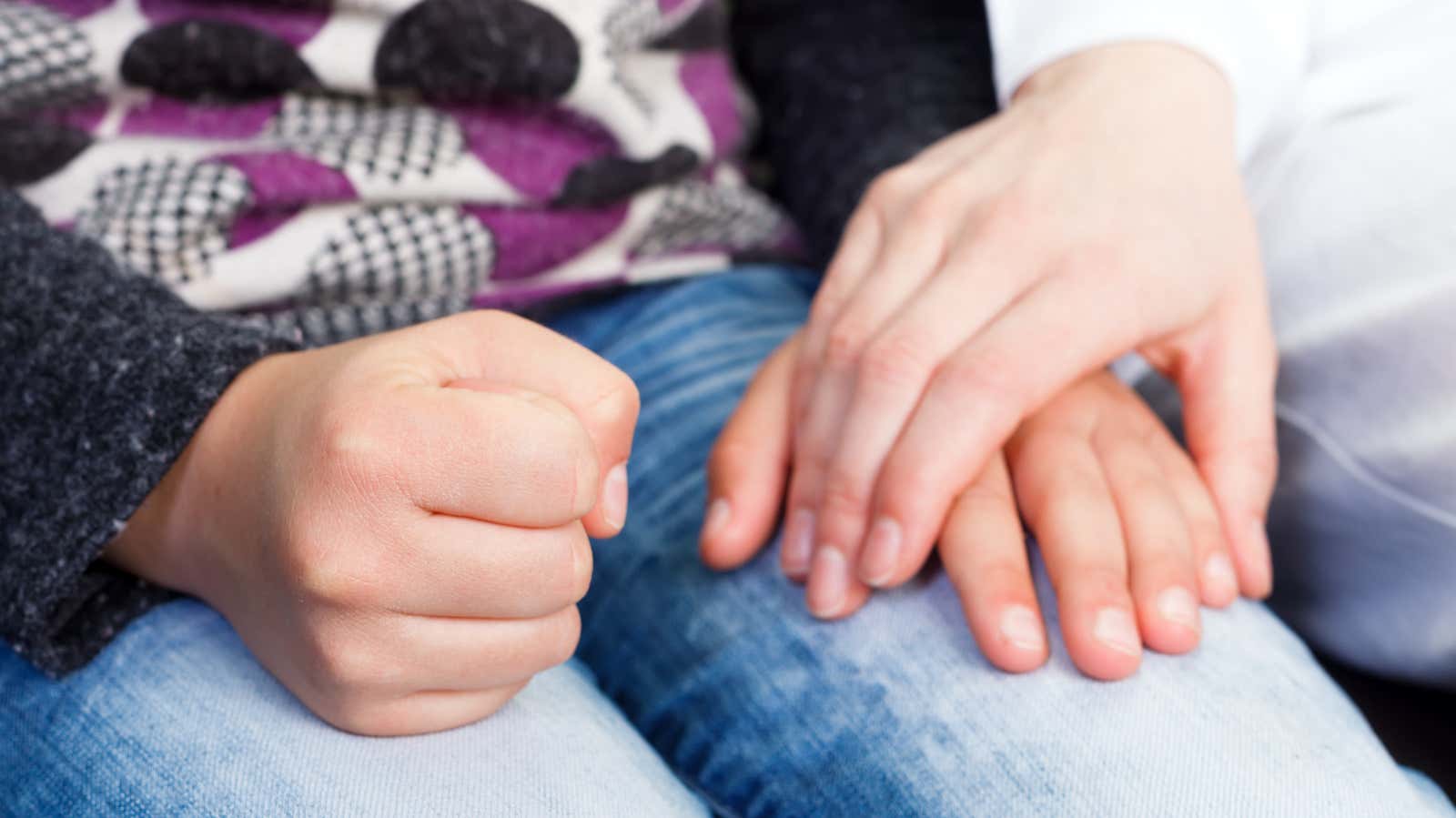The Best Way to Tell Your Child Terrible News, According to Reddit

Telling our kids bad news is terrible. Divorce, serious illness, death of a pet, death of a family member … there are many challenges they will face in their lives that we cannot fully protect them from. We need to tell them, because if we do not, it will make someone else; And it’s always better if it comes from us. But what’s the best way to tell your child bad news?
This is the question Reddit user u / HowToExplain12 asked in a particularly heartbreaking situation. A friend of their 12-year-old daughter was shot and killed, along with the siblings and mother of a friend. The shooter was the father of a friend, who also shot himself. U / HowToExplain12 didn’t know how to explain such a brutal and traumatic situation, but knew they had to find a way out. That’s when u / Lexi_St-James came in with some of the most thoughtful suggestions I’ve ever heard. And their advice can be used in a wide variety of difficult circumstances.
U / Lexi_St-James starts with this:
So I worked in a hospice and was a consultant before (although I did counseling on addiction issues).
Regardless of the person’s age, there is always an age-appropriate way to discuss “difficult” topics (eg death, sex, drugs, illness, divorce, etc.).
If the child is 12 years old, tell her that you have learned something very sad and want to talk to her about it.
From there, they suggest sitting outside or in some other calm, safe place, but not in a sacred place like her bedroom, because from that point on, she can associate that place with the news.
Sit facing her with your shoulders parallel to her shoulders in an open position and take her hands. Start with the most basic details first. In this case, that her friend and her friend’s family were killed. Give her time to process this, ask her how she is feeling, reiterating that everything she feels is normal and normal, and focus on her words and emotions.
From there she will ask questions as she will be ready to process the information. If she asks how they died, u / Lexi_St-James says to start with the victims (her friend, their siblings and their mother) and say they were shot with a pistol; this pistol was held by another person. Keep filling in the rest of the details as concisely as possible as she asks more questions.
After she has finished speaking, ask her if she would like to honor (her friend’s) memory with anything.
The point is, you allow them to carry on the conversation. Give her only the information she asks for. Answer briefly and only answer what she asked.
If you’re grieving too, psychologist Deborah Serani writes for Psychology Today that it’s also important to practice and model self-care. And you should always be prepared to seek additional professional help when needed.
One thing that is important to note; Among all the good advice from u / Lexi_St-James, there is one part I left out that the American Psychological Association is warning us about: attributing violent behavior to mental illness. If you don’t know for sure that mental illness was the true cause of the act, categorizing violent acts as a “mental illness” in general may serve to further stigmatize it.
If so, it’s probably better and more accurate to say that sometimes people do really bad things, and we don’t always know why.